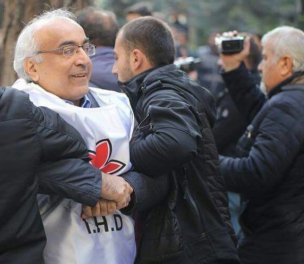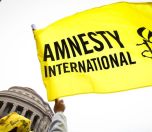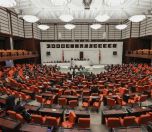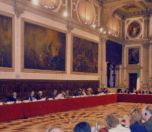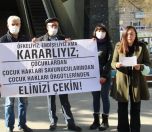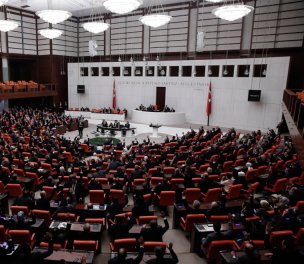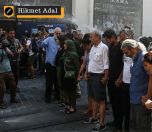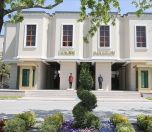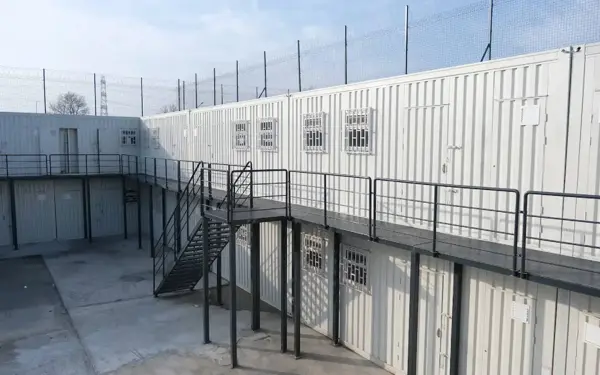Click to read the article in Turkish
"This legislative proposal which has been submitted to the General Assembly of the Parliament and will pave the way for appointment of trustees to civil society organizations is a message to all civil society organizations working in the field of human rights. The law will incorporate associations and foundations into the public hierarchy.
"If the elected executives of associations are removed from office and trustees are appointed in their place, the associations sharing alternative data on coronavirus will be unable to share this data with the public. The civil society organizations pursuing policies against coal-fired power plants, raising publicity about hate speech or problems of LGBTI+s and monitoring the right to a fair trial will be unable to fulfill their founding missions.
"What we call human rights is a concept that can be potentially violated only by the state and, when you monitor the violations, you can only monitor the ones committed by the state. Now, would the state make the trustees, whom it has appointed itself in the first place, monitor its activities?"
This is how Lawyer Kerem Dikmen, the Legal Coordinator of the Ankara-based Kaos GL LGBTI+ association, refers to the new omnibus bill that foresees a series of restrictions on civil society in Turkey.
Drafted by the ruling Justice and Development Party (AKP) and passed by the Parliamentary Justice Commission, the bill is, in fact, called the "Bill on Preventing the Spread and Financing of Weapons of Mass Destruction." However, it has also articles concerning the non-governmental organizations (NGO), which has caused worries that the activities of civil society will be restricted, if the bill is passed into law.
Against this background, 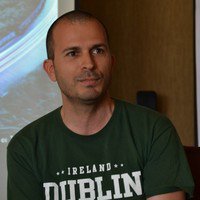 Dikmen reminds us that it was just a few weeks ago when Turkey was discussing a new "reform" process. "But we have seen that what civil society and the state understands from 'reform' is two different things," he says, elaborating on the heavy blow to be dealt to civil society by the law.
Dikmen reminds us that it was just a few weeks ago when Turkey was discussing a new "reform" process. "But we have seen that what civil society and the state understands from 'reform' is two different things," he says, elaborating on the heavy blow to be dealt to civil society by the law.
According to Dikmen, the legislative proposal foresees amendments to 7 different laws and the 1st article of the proposal applies to all associations and foundations operating in Turkey.
'It aims to paralyze associations'
Indicating that all associations and foundations are already under the supervision of Interior Ministry, Dikmen briefly says:
"In the event that the bill is passed into law, we will see it in two main ways. One of them is the inspections and the other one is a process that will cause the suspension of activities, removal of executives from office and, gradually, the closure of associations.
"In objecting to this legislative proposal, it first needs to be underlined that civil society has never had any concerns about being inspected. They are already being inspected. In addition to this, without any inspections, associations and foundations are obliged to automatically submit some information, notifications and statements to the public authorities.
"For instance, the new members and the ones removed from membership shall be notified to the Directorate General of Civil Society Affairs within 30 days. The acquisition of immovable property is notified, you submit yearly declarations, you give your balance sheets to the state by the end of the year... When you get a property in kind, when you donate in kind or get money from abroad, you already inform the state about it on a regular basis.
"In other words, these organizations fulfill the needs for inspection by submitting declarations and notifications routinely.
"Now, unlike the current law, these inspections are attempted to be turned into an annual routine with this legislation. Moreover, the inspections undertaken by the civil inspectors of the Ministry of Interior will be done by authorizing all public officials, except for law enforcement, with inspection.
"In other words, we will see a process where all public officials, relevant and irrelevant, are involved in the process of inspection. For instance, courthouse personnel... The persons who do not have the slightest knowledge about the legislation that the organization is subjected to will inspect associations. This is like going to the butcher's and wanting your vehicle to be inspected. The aim here is to paralyze associations. This law foresees an inspection process that will spread all across civil society and has no boundaries, like a virus."
'The same process with State of Emergency'
Dikmen also talks about the possible consequences of the investigations to be launched against civil society organizations and their executives. He reminds us that, if this bill is passed into law, the executives of the organizations can be removed from office without a court verdict.
Under normal circumstances, a person shall not be deprived of some rights as per the Article 53 of the Turkish Penal Code (TCK) in order to be elected to the executive boards of civil society organizations or political parties, says lawyer Kerem Dikmen and briefly adds:
"For instance, as per the Article 53 of the TCK, the restriction on a person convicted of, say, theft or willful injury is removed after the period of limitation expires. Now, this restriction will not be removed.
"In doing this, no court verdict will be necessary. An investigation against the person will be enough. The Interior Ministry will also be able to bar the activities of this organization if its executive is facing an investigation.
"This is the same process as the one during the State of Emergency, when associations are closed without judicial review. The law will enable the executives to do what they did during the State of Emergency.
"There is already a distrust of justice in Turkey in terms of judicial processes and right to a fair trial. The state can, of course, define criminal acts with penal codes and put the ones who committed these acts on trial. This is not what we are discussing.
"If there is no judicial independence and if there are problems with the right to a fair trial, then, you understand the danger when you take this law together with the current conditions in Turkey."
'They don't want society to come together'
Reiterating that the legislative proposal is a message to all non-public private and legal persons, including civil society organizations working in the field of human rights, Dikmen concludes his remarks as follows:
"First, bar associations, then professional organizations and, now, civil society organizations... This is in no way an independent, separate process. These are all the rings of the chain. There is an intention to incorporate civil society organizations into the public hierarchy.
"The right to association is being violated. Civil society is being demotivated. They want that no one open associations, society not come together or discuss. Civil society is being destroyed." (HA/SD)






-132.jpg)
